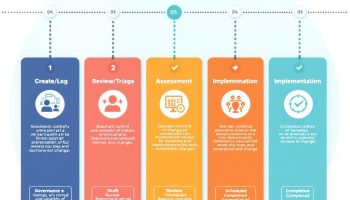
The Essential Role of Construction Software in Modern Projects
Construction software acts as a complete digital solution that simplifies project management with real-time dashboards, mobile document access, and automatic financial tracking. These advanced platforms bring together key operations, letting construction professionals track performance, handle documents, and manage costs all in one place.
Transforming Business Operations Through Digital Integration
Construction software has become vital for companies wanting an edge in today’s complex industry. It removes information barriers and manual tasks, cutting down on expensive mistakes and delays while boosting team collaboration. Companies that use comprehensive construction software see clear improvements in project timelines, budget management, and resource use. This digital shift leads to better profit margins, happier clients, and the ability to handle multiple projects at once.
Construction software helps you stay competitive by centralizing your operations. You’ll find that project tracking becomes more accurate, with real-time updates keeping everyone informed. Your team can access critical information from anywhere, making field decisions faster and more informed.
The financial benefits of implementing construction software extend beyond simple cost savings. You’ll gain precise control over expenses, materials tracking, and labor allocation. This visibility helps prevent budget overruns before they happen.
Teams using construction software communicate more effectively. Updates, change orders, and RFIs don’t get lost in email chains or paper files. Instead, they’re documented, tracked, and addressed promptly in the system.
Construction software also improves your compliance and safety standards. Documentation stays organized and accessible for inspections or audits. You can track safety incidents, maintain training records, and ensure regulatory requirements are met consistently.
6 Essential Features to Look for in Construction Software: Elevate Your Project Management Today
In today’s fast-paced construction industry, leveraging advanced construction software can dramatically enhance project efficiency and effectiveness. However, not all construction software is created equal, and understanding the critical features to look for is essential for optimizing operations. In this section, we’ll explore six must-have features that will transform your project management experience. From real-time project dashboards that provide instant visibility to mobile-first document management solutions that keep your team connected, the right construction software can streamline processes and improve collaboration. Additionally, we’ll discuss automated cost tracking, resource scheduling engines, collaborative communication hubs, and tools for quality control and safety compliance. By prioritizing these features, you can ensure that your construction projects are executed smoothly, on time, and within budget.
“`html
1. Real-Time Project Dashboard
Modern construction software offers powerful real-time dashboards that transform how you monitor project performance. These centralized platforms provide instant visibility into all critical construction metrics and KPIs, eliminating the need for manual reporting. With construction software dashboards, you can track live progress indicators including budget utilization, material deliveries, and labor productivity—all from a single interface.
The ability to customize widgets allows different stakeholders to focus on metrics relevant to their roles. Project managers can monitor schedule adherence while executives track financial performance, creating strategic dashboards tailored to specific needs. These dashboards facilitate immediate identification of potential issues before they escalate into costly problems.
Key dashboard features include:
- Centralized view of all project metrics and KPIs
- Live progress tracking and performance indicators
- Customizable widgets for different stakeholder needs
- Graphical representations of critical data
- Alert systems for deviations from planned parameters
“`
2. Mobile-First Document Management
Modern construction software provides robust document management solutions designed specifically for mobility. You can leverage cloud-based storage to access plans, permits, and contracts from any location, transforming how construction teams operate in the field.
Construction software with mobile capabilities allows your team to review and update critical documents in real-time without returning to the office. With version control features, everyone receives automatic notifications when documents change, eliminating confusion about which version is current. This document version control functionality prevents costly errors from outdated information.
The offline access capability is particularly valuable for construction sites with limited connectivity. Your team can download necessary documents before heading to remote locations, ensuring they have access to critical information regardless of internet availability. Once back online, any changes automatically sync with the main system.
Key benefits of mobile document management in construction software include:
- Immediate access to updated blueprints and specifications
- Ability to capture and attach site photos to relevant documents
- Electronic signature capabilities for faster approvals
- Reduction in paper usage and physical storage requirements
- Enhanced project collaboration across distributed teams
Expert Insight: Adopting mobile-first document management in construction enhances real-time collaboration and reduces errors through automatic version control and notifications. Offline access ensures vital information is always available on-site, even in low-connectivity areas. Ultimately, this approach streamlines processes, improves approvals, and minimizes reliance on physical documents.
3. Automated Cost Tracking
Implementing effective construction software with automated cost tracking capabilities transforms how you manage project finances. Advanced construction software solutions provide real-time budget monitoring systems that alert you immediately when expenditures approach or exceed predefined thresholds. This proactive approach helps prevent cost overruns before they spiral out of control.
The integrated purchase order and invoice management feature streamlines your financial documentation, creating a seamless connection between commitments, deliveries, and payments. By eliminating post-hoc management of expenses, you maintain better financial control throughout the project lifecycle.
Construction software also excels at automated cost allocation across different project phases, giving you precise visibility into where your money is going. Consider these key benefits:
- Automatic calculation of labor costs based on time entries and wage rates
- Material expense tracking with variance reporting against estimates
- Equipment utilization cost distribution with depreciation factors
- Subcontractor payment management with automated approval workflows
With these capabilities, you can identify cost-saving opportunities and make data-driven decisions that protect your bottom line. The schedule variance tracking features further enhance your ability to correlate timeline delays with financial impacts.
Expert Insight: Utilize construction software with automated cost tracking to gain real-time budget insights and prevent cost overruns. Integrating purchase order management ensures seamless financial documentation, while precise cost allocation allows for data-driven decisions. This proactive approach enhances control, identifies savings, and correlates timeline delays with financial impacts.
4. Resource Scheduling Engine for Streamlined Construction Software Management
Implementing an effective resource scheduling engine within your construction software delivers significant operational advantages. Modern construction software platforms integrate powerful scheduling tools to maximize workforce productivity and equipment utilization.
Your scheduling capabilities should include dynamic allocation features that respond to changing project demands. The best construction software systems automatically detect scheduling conflicts between crews, equipment, and material deliveries before they impact project timelines. This capacity planning functionality ensures resources are optimally distributed across multiple job sites.
Scheduling engines in advanced construction software offer these key benefits:
- Real-time visibility into labor availability and equipment status
- Automatic conflict detection with suggested resolution options
- AI-powered schedule optimization that accounts for weather, site conditions, and resource constraints
- Integration with procurement systems to align material deliveries with task schedules
When selecting construction software, prioritize solutions that enable you to create what-if scenarios for resource allocation. This capability lets you assess project constraints and dependencies more effectively, preventing costly delays and maximizing resource efficiency across your entire portfolio.
Expert Insight: Incorporate a resource scheduling engine in your construction software to enhance productivity and optimize resource allocation. Look for features like automatic conflict detection and AI-driven scheduling that adapt to changing conditions. Prioritizing these capabilities will help you mitigate delays and improve efficiency across your projects.
5. Collaborative Communication Hub
Effective construction software enhances team coordination through integrated communication features. Modern platforms provide robust in-app messaging systems that keep all project-related conversations centralized and easily accessible. When selecting construction software for your projects, prioritize solutions with role-based access controls that ensure stakeholders only view information relevant to their responsibilities.
The best construction software solutions streamline documentation workflows through integrated Request for Information (RFI) and submittal management tools. These features eliminate communication gaps that traditionally plague construction projects and create a single source of truth for all team members. According to project collaboration experts, effective communication reduces rework by up to 30%.
Key benefits of collaborative communication hubs include:
- Real-time notifications that alert team members about critical updates
- Threaded conversations that maintain context for complex discussions
- Mobile access that connects field and office personnel seamlessly
- Automated tracking of communication history for accountability
- Integration with email systems for team members who prefer traditional communication
Expert Insight: Invest in construction software with integrated communication features to enhance team coordination and reduce rework. Prioritize systems that offer real-time notifications, threaded discussions, and role-based access controls for streamlined information sharing. Effective communication minimizes gaps, ensuring all stakeholders are aligned and focused on project success.
6. Quality Control and Safety Compliance
Modern construction software transforms quality control and safety compliance from paper-heavy processes into streamlined digital workflows. The right construction software integrates quality assurance directly into your daily operations, making it easier to maintain standards while meeting regulatory requirements.
Construction software with robust quality control features allows you to create customizable digital inspection checklists that standardize procedures across all your projects. These digital tools replace traditional clipboard methods, allowing for faster completion and immediate data capture. You can document issues with photo and video evidence tagged with precise GPS coordinates, creating an indisputable record of site conditions.
Safety compliance becomes more manageable with automated incident reporting systems that ensure nothing falls through the cracks. Key advantages include:
- Digital inspection checklists and reports that can be completed on mobile devices, reducing paperwork and improving compliance tracking
- Photo/video documentation with GPS tagging that provides irrefutable evidence for quality issues or safety concerns
- Automated safety incident reporting and tracking that streamlines your risk response strategies and helps prevent recurring problems
By implementing these quality control tools, you can reduce rework costs, minimize safety incidents, and create a documentable trail of compliance that protects your company from potential litigation.
Benefits of Construction Software
Construction software integrates critical features that streamline project management through real-time dashboards, mobile document access, automated cost tracking, resource scheduling, collaborative communication, and quality control systems. These digital platforms centralize operations by providing instant visibility into metrics, eliminating manual reporting, and enabling teams to monitor everything from budget utilization to labor productivity through a single, customizable interface.
Importance for Enterprises
Construction software has become essential for enterprise users facing the complexities and competitive pressures of modern building projects. By implementing these digital solutions, construction firms can:
- Significantly reduce costly errors
- Improve resource allocation
- Enhance compliance documentation
- Maintain better financial control
Throughout the project lifecycle, these benefits ultimately lead to:
- Improved profit margins
- Faster project completion times
- Superior quality outcomes
These factors give businesses a decisive competitive advantage in the industry.






